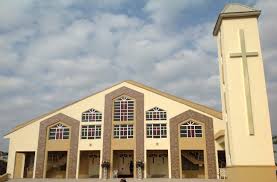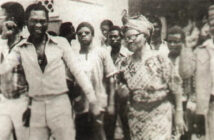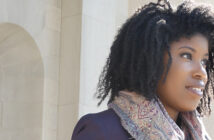The Anglican Communion is in the news again. First, it was the issue of homosexuality in the church, when in 2002 the Diocese of New Westminster in the Anglican Church of Canada approved same-sex union and barely a year later, two gay men in England and the United States became candidates for the office of Bishop, which led to the declaration by the 13th Lambeth Conference of Anglican Bishops to the effect that “homosexuals acts are incompatible with the Scripture.”
‘There’s Ongoing Discussion To Look Into The Role Of Women In The Church.’
(Most Rev. Emmanuel Egbunu, Bishop of Lokoja Diocese (Anglican Communion)
FOR now, the Church of Nigeria (Anglican Communion) has not made any public statement concerning that, and I am not aware of any. I just came back from a trip, but I do know that the Church of Nigeria has been discussing for some time now, how the ministry opportunities for women can be enhanced.
I think the time to look forward to it is when the General Synod holds in Enugu in September this year. There will be more specific things said about that, but there had been an ongoing discussion to look into the role of women in the Church. What can they do or cannot do? And I’m sure a thing like this will come up again for discussion. Even in the Church of England, it’s been a long journey for it, they did not arrive at this matter just over night.
The way the Church of Nigeria approaches decisions is: what does the Bible say or how does it apply to us? Regardless of whatever the Church of England or others are doing, our first reaction to any issue is: what is the teaching of the Bible on this? How do we understand it and what are our peculiar situations? By this, I mean we are in Africa and there are other churches in Africa that have women priests. For instance, Sudan and East Africa have. But we have to look at our situation in a unique context and how we can interpret the Bible in that context.
Basically, it is not about the women thing for us. Rather, it is about how the church can grow. On the affirmation of women’s role, are there things they can do? Are there things they can’t do? How do we ensure they are not undermined? Those are the things we are looking at.
When we meet in Enugu in September, I think that is when final decisions will be taken because some issues are already being processed, though not about women becoming Bishops. We will also be looking at that more closely. We can’t talk of women Bishops, when we have not settled the issue of women as priests.
‘We Are Waiting For The General Synod To legislate On It’
(Rt. Rev. Isaac Chijioke Nwaobia, Bishop, Diocese of Ngwa South (Anglican Communion)
THE news is not so serious to us because that is not the bone of contention with the wide world Anglican Communion. Ordination or consecration of women Bishops by the Church of England should not be so surprising, since the Church has been having deaconesses or women priests, it is expected that one day those priests would be upgraded to the level of bishops.
For me, women have been very active in church leadership and history. I have no problem with that and I feel that the Church of Nigeria will not be bitter about that development in the Church of England. But as for Church of Nigeria, I do believe too that with time and as we keep discussing the issue of permanent deaconate, once we are done with it, we will still have women archdeacons, women provosts and women administrators of cathedrals. And then one day, we will have women bishops just like we have people in politics. Over time, we’ve been seeing women, who are counselors and chairmen of local governments in Nigeria. We’ve had a woman governor, and one day, we will have a woman president. So, it is a welcome development. We have committees that are discussing it and very soon, the General Synod will legislate on it and we will vote. We have some bishops that are convinced about it, but we have to wait for the General Synod, which meets once in three years for approval.
The ordination of women should not be a question of culture. Rather, it should be a question of people that are devoted, people that are committed, and who are children of God and have been called and endowed with the pastoral skill to do the work. Often times, I see that women are more effective than the men. It is my belief that very soon, there will be a similar development here in the Church of Nigeria (Anglican communion).
‘Church Of Nigeria Is Not Against Women Ordination’
(Rt. Rev. Michael Olusina Fape, Bishop, Diocese of Remo Anglican Communion, Ogun State)
THE beauty of the Global Anglican Church is that every constituent Province is autonomous and has the right to order what goes on within it without undue interference from outside. Therefore, the fact that a province has adopted a particular ecclesiastical administrative method does not make same mandatory for the others.
There are about 38 provinces in the Global Anglican Communion. While some have women Bishops, others do not even have women deaconess or priests. Therefore, the approval of the elevation of women to the level of Bishops in the Church of England is an internal affair of the Church.
There are issues within the Anglican Communion, which when taken on board, have no damaging effects on the faith once committed to the saints. One of such is the ordination of women, where the contentious issues have more to do with cultural biases of the respective provinces rather than the appropriateness of its spirituality.
Therefore, for us in the Church of Nigeria, the recent approval of women Bishops in the Church of England is not a novelty. There have been many Provinces before them, and we are in healthy communion with such Provinces. The issue of women ordination is also in the front burner of the Church of Nigeria. Unlike the issue of homosexuality, which is scripturally untenable, the Church of Nigeria is not against women ordination.
As a Church that upholds the integrity of the Scripture, “For you are all sons of God through faith in Christ Jesus. For as many of you as were baptised into Christ have put on Christ. There is neither Jew nor Greek, there is neither slave nor free, there is neither male nor female; for you are all one in Christ Jesus” (Galatians 3:26-28). The Church of Nigeria is only waiting for all necessary constitutional provisions to be met via its administrative organs: the Houses of Bishop, Clergy and Laity both at national and local levels.
‘We Need To Be Enlightened Before Going Into It’
(Rt. Rev. Johnson Atere, Bishop of Awori Diocese (Anglican Communion)
WE cannot isolate the church from the community and sometimes, the worship of God is more relevant in the context of the understanding and culture of the people. So, on their own, there are some cultural supports for whatever they are doing. But here in Nigeria, it is not like that, as we are not ruling out even the priesthood for women. But what we are saying is that culturally, we need to develop. We need to be more enlightened before we can go into it. If we go into it now, people may not understand what we are doing and that is why the Church is suggesting that we build the understanding of the people first. Let them understand the Bible first before we can go into anything as complicated as that.
Even the ordinary permanent deaconate that is being discussed, the women themselves are against it. They are against permanent deaconate that cannot go beyond being a deacon. You limit yourself to the functions of a deacon, which is permanent, but cannot translate into ordination. Women in most of the dioceses are against that. How do you now talk of ordination of women and the consecration of women as bishops? So, it is more of the understanding of people than the Church itself.
We are not under the Church of England. We have our own communities and do not have to follow what they do in England. After all, most of these missionaries are not in support of homosexuality. Our own culture, apart from what the Bible says, does not support it. What I’m saying in effect is that we are not yet mature enough to go into such venture. We don’t celebrate it, it is their own understanding, but here, only the elite will be able to go along with such thing, but the majority of our members are not in support.
I just told you that the permanent deaconate, which differs from a present lay reader by just the wearing of a collar is not being supported by members. So, we need to enlighten our people before we gain their consent.




